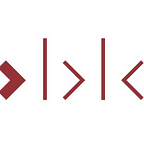Inside the Assembly Student Fellowship
By Zenzele Best
“One of the best parts of [the Assembly Student Fellowship] has been meeting so many incredible students from across the university,” reflected current Fellow and JD candidate Flora Wang. “Harvard can feel very big, so it’s been wonderful to meet like-minded individuals throughout this program. I’ve learned a lot from the diversity of insights and perspectives on disinformation and have enjoyed getting to know my cohort.”
The Assembly Student Fellowship — formerly called Techtopia — is comprised of a cohort of 17 competitively selected students from 9 schools across Harvard University, including the College, the Medical School, and the Graduate School of Design. Student Fellows spend the year learning about disinformation from experts in academia, media, and industry, eventually splitting into teams to develop projects that tackle the spread and consumption of disinformation in a tangible way.
The fall semester of the Assembly Student Fellowship was focused on getting students up to speed on the fast-moving field of disinformation studies, and identifying appropriately scoped problems or questions that might form the basis for projects. Professor Jonathan Zittrain kicked off a yearlong seminar series with a crucial level-setting session for Student Fellows, diving deep into terminology and discussing how rapidly evolving political and social contexts shape disinformation campaigns on digital platforms.
Subsequent seminars in the fall semester focused on disinformation from a variety of perspectives. Students had discussions with leading experts at the forefront of the disinformation space, including:
- Members of the Assembly Forum, an expert discussion group that convenes several times a year to discuss challenges in the disinformation and cybersecurity domains.
- Ryan Merkley, Chief of Staff of the Wikimedia Foundation, who led an enthusiastic roundtable on Wikipedia’s vulnerabilities to disinformation campaigns, particularly within the context of the upcoming US elections.
- Dr. Joan Donovan, Director of the Technology and Social Change Project at the Shorenstein Center for Media and Politics, who offered a sociological perspective, leading a discussion on the use of memes in media manipulation campaigns.
- Jane Lytvynenko, a Disinformation Reporter at Buzzfeed, who joined the cohort via a video call from Buzzfeed’s newsroom in Toronto and gave insights into the tools journalists use to evaluate disinformation campaigns and led a broader discussion on the relationship between journalists and major tech platforms.
The seminar series provides students with the tools to think critically about disinformation, helping them decide how best to leverage their skillsets during the project phase of the program. Student Fellow Jess Eng, a rising senior pursuing a joint degree in Folklore & Mythology and Statistics, noted that she “absolutely loved hearing from experts on disinformation and media, which has empowered me to research and track this topic independently.”
After the first semester’s Seminar Series concluded, Student Fellows engaged in two ideation sessions, led by Berkman Klein Center Fellow Sarah Newman, to help them better define their areas of interest and break into project teams.
Teams are exploring projects related to news labeling, disinformation-fueled violence, improving media literacy, and tracing disinformation campaigns related to the Hong Kong protests. Student Fellows wrapped up the first half of the program by scoping their project ideas, writing and submitting proposals to the Assembly staff team.
We’re looking forward to jumping back into programming during the Spring semester, over the course of which Student Fellows will focus on developing their projects, augmenting their knowledge of the disinformation space through additional speakers, and — of course — continuing to bond as a cohort.
As current fellow and MBA candidate Christine Keung put it, “I’ve really enjoyed the opportunity to learn from experts at BKC who have guided our understanding…but I’ve learned the most through the perspectives and questions of the other Assembly Student Fellows. The program recognized in its design and selection process that any meaningful solution must be interdisciplinary, and I’ve really enjoyed meeting and partnering with students across Harvard to learn more about the topic.”
